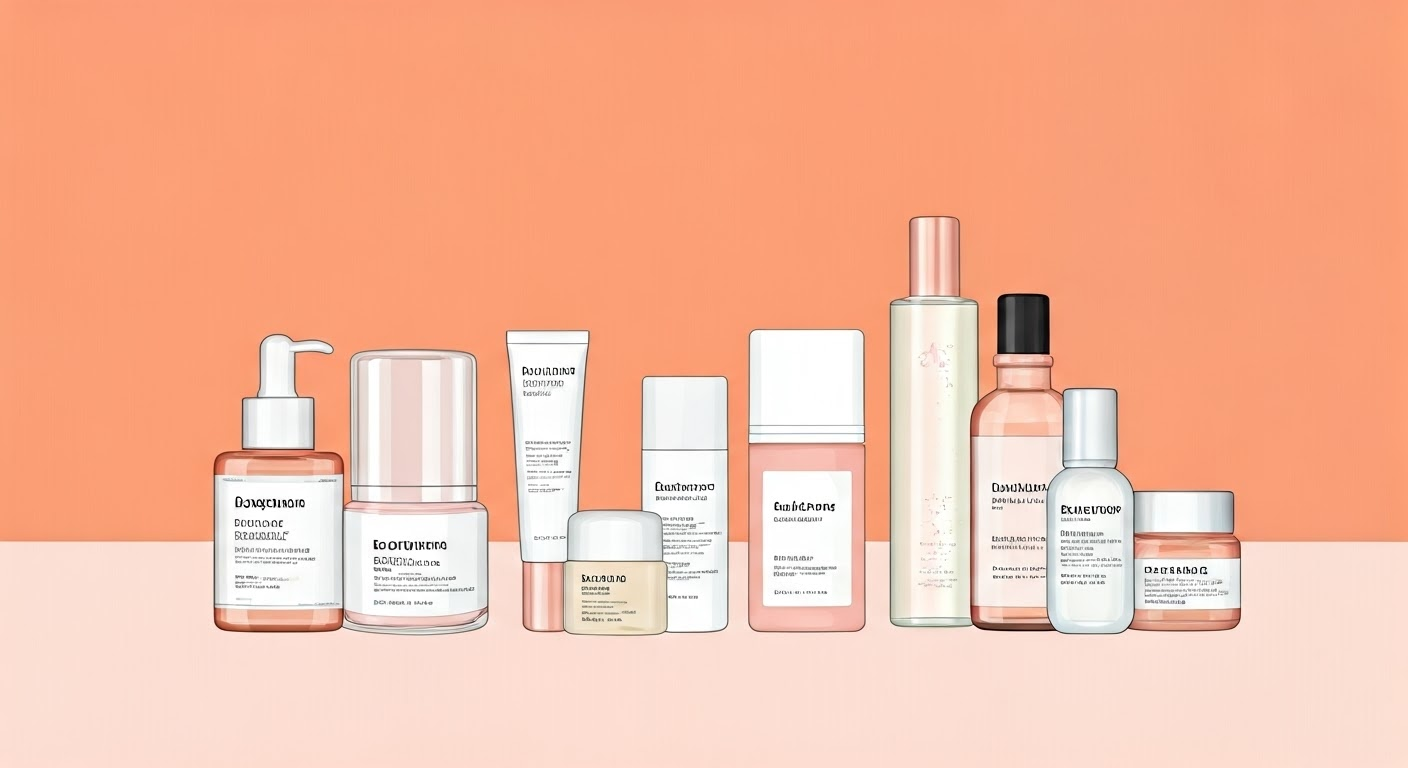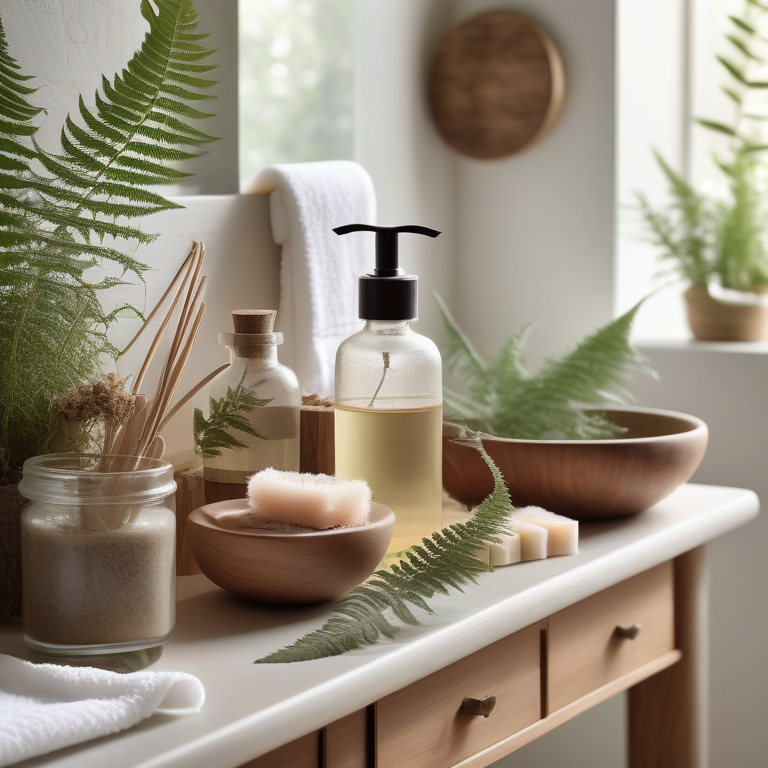Balancing Hydration: Preventing Over Hydrated Skin


Key Highlights
Maintaining the right balance of hydration is crucial for healthy skin and a strong skin barrier.
- Over-hydrating the skin can lead to issues like excess moisture, small bumps, and oily skin.
- Understanding the science behind skin's hydration balance involves factors like skin type, hyaluronic acid, and water loss.
- Common misconceptions need to be debunked, such as the belief that more moisturizer is always beneficial.
- Recognizing the difference between hydrated and over-hydrated skin is essential for tailored skincare routines.
- Correcting over-hydrated skin involves steps to restore the skin's hydration balance and knowing when to seek professional help for hydration issues.
Introduction
Hydration is very important for having healthy skin. However, too much hydration can cause problems like over-hydrated skin. To grasp the signs and science behind skin hydration, understanding is key. In this blog, we will clear up some common misunderstandings, suggest ways to prevent issues, and give guidance for fixing over-hydrated skin. With a focus on your skincare routine and being careful about the ingredients you use, achieving the perfect balance for your skin type is possible. Together, let’s look at how to keep hydration levels just right for glowing, healthy skin.
Understanding Over Hydration in Skin

Overhydration in skin occurs when there is excessive moisture, leading to issues like blocked pores and breakouts. This often stems from using too much moisturizer or introducing substances that disrupt the skin's equilibrium. Recognizing signs of overhydration, like tiny bumps or increased oiliness, is crucial. Understanding the skin's hydration balance helps maintain a healthy and glowing complexion.
Signs You Might Be Over Hydrating Your Skin
Your skin might show signs of over hydration, including more breakouts, a greasy or sticky feel, or a feeling of tightness. Too much moisture can throw off your skin's natural balance. This leads to clogged pores, redness, and irritation. Pay attention to these signs to prevent over hydrating your skin. It’s important to keep a balanced skincare routine to have healthy and nourished skin.
The Science Behind Skin's Hydration Balance

Your skin's balance of hydration is affected by many things, like sebum production, how moisture is kept, and the skin barrier function. With the skin barrier made of lipids and proteins, it stops water from leaving your skin. Hyaluronic acid and ceramides serve as important parts that keep hydration levels steady. By understanding your skin type and its natural ability to hold on to moisture, you can achieve better hydration. Harsh environmental things may upset this balance, causing problems such as dryness or too much excess sebum. With proper skincare products, you can help bring back and maintain this delicate balance.
Common Misconceptions About Skin Hydration
Finding the perfect balance in hydration is important for good skin. Getting too much moisture can cause clogged pores, leading to possible acne breakouts. It’s necessary to know the difference between hydrated skin and over-hydrated skin. Many people think thick creams are the best for hydration, but these can actually smother the skin. Choosing lighter formulas can give your skin the nourishment it needs without adding too much moisture. By paying attention to what your skin requires, you can adjust your skincare routine to achieve healthier skin.
More Is Not Always Better: Debunking Hydration Myths

In skincare talks, many think more moisturizer equals better hydration. Some believe using lots of products makes skin look healthier. However, this notion is not entirely correct. Using excess can disrupt your skin's balance, causing issues like clogged pores, breakouts, and irritation. Understanding your skin type helps determine the appropriate product quantity. Properly hydrating your skin relies on using the correct amount suited to its unique requirements. This helps maintain a healthy and balanced complexion.
The Difference Between Hydrated and Over Hydrated Skin
Hydrated skin is smooth and full, making sure it stays moist for a healthy shine. On the other hand, over-hydrated skin feels too wet and might look shiny or greasy. By hydrating your skin, you keep it balanced and well-nourished. Yet, when there is too much hydration, it can result in clogged pores, breakouts, and a weak skin barrier. Knowing this difference is important for adjusting your skincare routine to find the perfect balance of hydration needed for the best skin health.
Preventative Measures for Balanced Skin Hydration

Choosing the right skincare routine for your skin type is important to keep it hydrated. With regard to products, pick ones that help your skin's barrier, like light serums with ceramides. For harsh cleansers, you should stay away because they can take away your skin's natural oils. Instead, go for moisturizing products that have hyaluronic acid, which helps with keeping moisture. In addition, remember that being consistent is important for balanced hydration. Moreover, make sure to tweak your routine according to seasonal changes and what your skin needs at the time.
Tailoring Your Skincare Routine for Optimal Hydration
For making your skincare routine work best for hydration, think about your skin type and what it needs specifically. With dry skin, select richer and creamier moisturizers that contain ingredients like shea butter or olive oil. For those who have oily or acne-prone skin, it's good to pick lighter lotions or gels that include hyaluronic acid. Regularly exfoliating will help get rid of dead skin cells and improve how well products are absorbed. By adding hydrating serums or masks whenever necessary, you’ll create a balanced routine with the right amount of moisture and nourishment.
Ingredients to Avoid If You're Prone to Over Hydrating

When possible, avoid heavy oils like coconut oil and shea butter because they can make hydration issues worse. In addition, stay away from harsh sulfates or alcohol, as these can strip the skin. Also, limit products that have "a lot" of hyaluronic acid, since they can lead to too much moisture. Furthermore, be careful with rich creams that include ceramides, as they may add too much moisture to the skin. Since fragrances and essential oils can irritate skin that's already over-hydrated, it's best to choose products that are fragrance-free.
Correcting Over Hydrated Skin
To restore your skin's hydration balance, start with gentle exfoliation. This helps to remove excess moisture and supports skin renewal. By using a mild cleanser, you can clean your skin without causing harm. On top of that, avoid heavy and occlusive moisturizers since they can mess up your skin's natural balance. For better results, opt for products that contain ceramides and antioxidants. These ingredients work to strengthen the skin barrier. Also, consider adding products that have retinol or niacinamide to your routine. These features help regulate sebum production, which prevents overhydration. If you keep having problems, it's a good idea to seek guidance from a dermatologist.
Steps to Restore Your Skin's Hydration Balance

In order to restore your skin's hydration balance, it’s best to begin with a simpler skincare routine. Choose products appropriate for your skin type and avoid using too much moisturizer. On a weekly basis, exfoliate to get rid of dead skin cells, which helps other products absorb better. With a lightweight, non-comedogenic moisturizer, you can keep your pores from getting clogged. Also, adding hyaluronic acid into your routine provides great hydration without feeling heavy. Keep an eye on how your skin reacts and change products as needed. By seeking professional skincare advice, you could develop a personalized plan for maintaining balanced hydration. Always remember, having balance is essential for achieving healthy, glowing skin.
When to Seek Professional Help for Skin Hydration Issues
If you have ongoing problems after trying to change your skincare routine, like constant dryness, too much oiliness, or repeated acne breakouts, it could be a good idea to visit a dermatologist. With unresolved hydration issues, you risk damaging your skin barrier and experiencing inflammation or other skin health problems. A dermatologist can look at your skin type, find any hidden issues, and suggest specific treatments or products that fit your skin needs. With prolonged or serious hydration problems, it's really important to get professional help to keep from making things worse.
Conclusion
For healthy skin, achieving balanced hydration is important. By understanding your skin type, you can adjust your skincare routine to avoid over-hydration. With excess moisturizer, it’s good to choose products that have suitable ingredients like hyaluronic acid to help maintain your skin's natural moisture levels. If you notice signs of over-hydrated skin, it’s best to consult a dermatologist for solutions that fit your needs. Always keep your skin's unique needs in mind. Striking the right moisture balance leads to radiant and nourished skin.
Frequently Asked Questions
How Can I Tell If My Skin Is Over Hydrated?
Pay attention to signs such as too much oil, breakouts, or a heavy feeling on your skin. When your skin looks dull or seems blocked, it could mean that it has too much moisture. By assessing your skincare routine, you can make adjustments to achieve a better hydration balance.
Is It Possible to Reverse the Effects of Over Hydration?
Sure, you can improve the effects of over hydration. By changing your skincare routine, you can make a difference. Using products that have balanced ingredients helps too. Plus, if necessary, talking to a dermatologist can provide more help.
How Often Should I Adjust My Skincare Routine?
For balanced skin hydration, you should change your skincare routine with the seasons or when your skin issues change. By regularly checking if your products are still working well, you can make updates when necessary. With that, it's best to avoid too many changes to prevent any skin reactions. On top of this, make your adjustments based on your specific needs.
Can Diet Influence My Skin's Hydration Levels?
Diet is very important for keeping your skin hydrated. Foods with essential fatty acids and antioxidants can help maintain healthy skin hydration. On the other hand, eating too many sugary or processed foods might cause your skin to become dehydrated.




